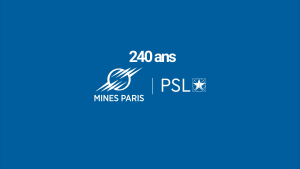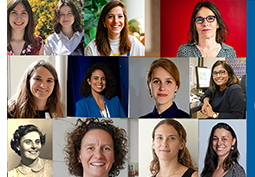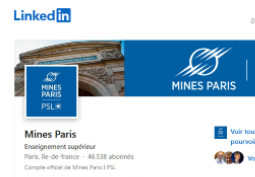



 Lecture
Lecture
Bio-based aerogels: new eco-friendly porous materials for thermal insulation and controlled release
Retour à la liste des propositions

Ecole
240 ans de recherche et de formation
Vidéo : 240ans de recherche…
> En savoir +
Recherche
Prix Jean Mandel 2023 mécanique des matériaux
Le prix Jean Mandel décerné tous les…
> En savoir +

Formation
Samuel Forest, élu membre de l’Académie des…
Samuel Forest lors de sa réception à…
> En savoir +

Formation
Mines Paris plébiscitée par ses étudiantes
Mines Paris - PSL, une école qui répond…
> En savoir +

Formation
Femmes de science
Chercheuses confirmées, doctorantes, élèves ou alumni,…
> En savoir +

Formation
Quelle école d’ingénieurs a le…
Mines Paris - PSL au Top 5 du classement LinkedIn 2023…
> En savoir +
